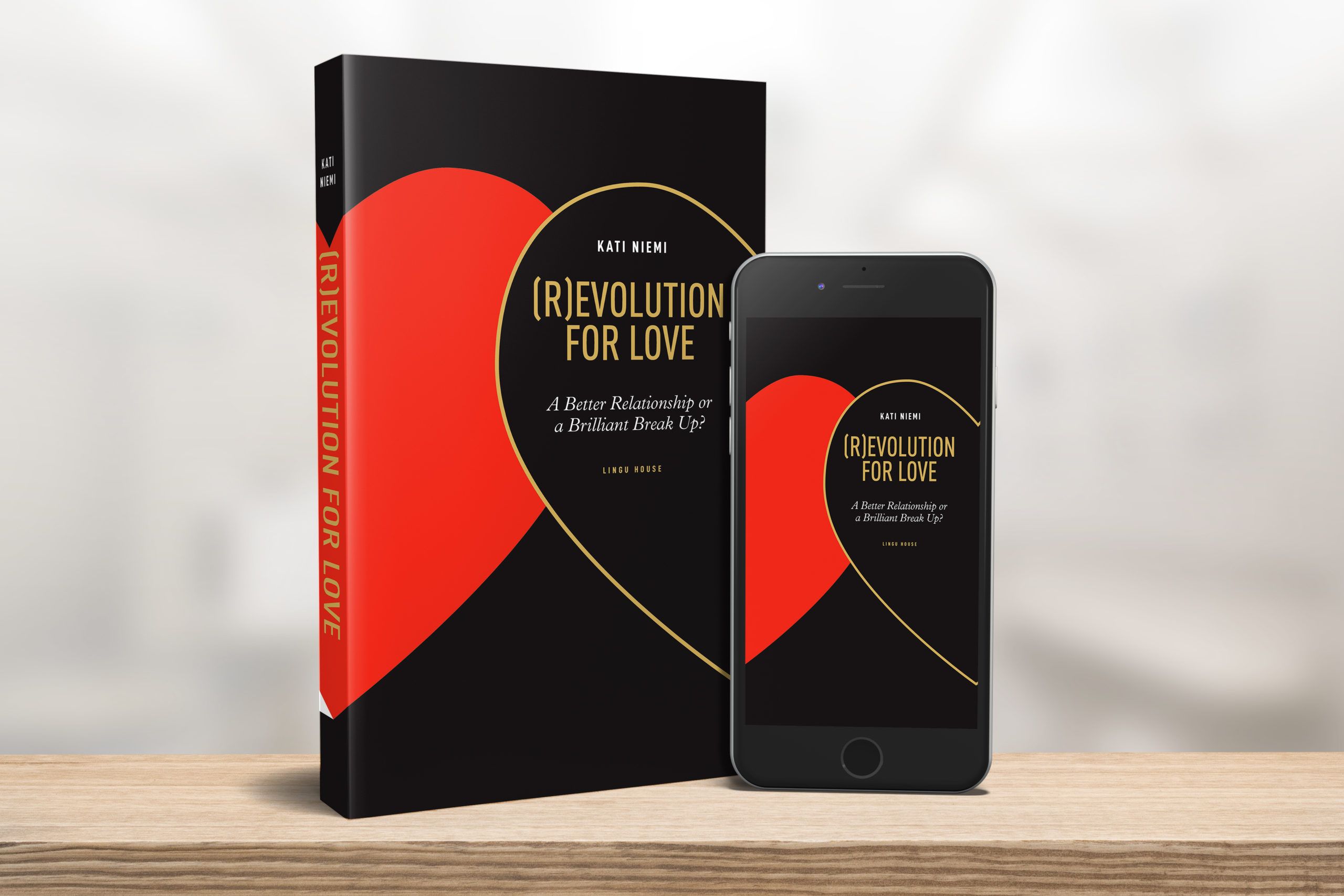In a relationship in which one of the partner suffers from the other one’s lack of interest in sex, the common mistake is to confuse sex drive and love. If the person with the lower sex drive keeps hearing that they are unloving and cold when they are not, they will obviously quickly get their defences up.
Does the fact that your partner does not want to have sex with you mean that they don’t love you? And does the fact that I want to leave my sexless relationship mean that I don’t love my partner?
This blog posts discusses the ways of stopping the vicious circle of mutual recriminations between partners with incompatible sex drives. The aim is to refocus that energy on finding a solution that suits both.

Sexless Marriage: Celibacy when your partner doesn’t want to have sex
Living in a sexless relationship when your partner does not want to have sex. No sex in marriage. Involuntary celibacy in a sexless marriage
“My partner makes me feel awful for (not) wanting sex!”
If one of the two people in a relationship has a problem with the way the two interact as a couple, then the couple has a problem. Problems in a relationship are always the responsibility of both. Therefore, it is important that the couple is able to discuss any problems openly. Also fairly without blaming each other.
The blame game is only too easy to start:
- “You don’t care about me feelings and needs and make me suffer in a sexless relationship!”
- “You keep asking for sex when you know I don’t want it. It’s you who doesn’t care about my feelings! There are lots of happy couples who don’t have sex!”
- “There are lots of couples who do have sex. Is it even a proper relationship if there’s no sex! You clearly don’t love me because you don’t want me!”
- “I do love you but I simply don’t want to have sex! Why is sex so important? Why isn’t my love enough? You clearly don’t love me if sex is your only problem!”
- “It is the lack of it that is my only problem! If you can’t see that, you clearly don’t love me!”
Sex and love are two easy – and so pointless – things to argue about. Sex and love come in so many shapes and forms.
So, who’s right?
A partner who doesn’t want to have sex can easily blame their partner for making them feel like they are not enough. Their crime is the refusal to settle for “love” (or some of its forms) and wanting sex (a form of love). In fact, the person putting the blame on their partner is guilty of equal wrongdoing. The opposite of love is not hate but indifference. If one of the partners suffers from the other one’s lack of interest in sex, it is a problem that both partners must own. That’s what relationships are for.

What is an open relationship? Does it lead to breaking up?
What is an open relationship? Who are non-monogamous open relationships for? Is your partner suggesting consensual non-monogamy?
On a similar vein, a partner who wants sex may blame the other partner for making them live without sex. They draw the parallel that because the partner does not want to have sex with them they don’t love them either. (Because that’s how you show love). In reality, they are dismissing the hopes the partner has and rejecting the love that the are showing.
The partner who does not want to have sex might still be deeply in love with their partner
The problem is that the two place different values on different forms of love. It is not a very loving act for a person with a low sex drive to not accept that their unwillingness to have sex can be a problem.
A person who has a higher sex drive and loves their partner dearly will want to feel close to their partner. For them sex is an important way of showing that love.
However, a person who loves their partner will not blame and criticise their partner for withholding sex or cheat on them. Instead, a loving partner would openly raise the problem for discussion.
A lack of love towards oneself is usually the cause of the biggest relationship problems
If you don’t love yourself, talking about your needs and hopes becomes difficult. Without those discussions your partner will not know how to honour them.

Great sex while single from Tinder and other dating apps!
The gallery of people on Tinder is as varied as people in general. Happily, every single person can find good sex from Tinder or elsewhere.
The incompatibility of sex drives is probably painful to both. Often the one who doesn’t want sex would like to want to have sex. It is quite likely that the one who doesn’t want to have sex feels bad for their partner.
Once both of you acknowledge that there is a problem you can start resolving it. In fact, resolving it is your duty both towards yourself and as a partner. Otherwise you can stop talking about a relationship, if everything else in your relationship works but sex.
Psychology of love: “Empty” vs. “Consummate love”
The nature of love is easy to disagree on. That is probably one of the reasons there are so many different theories about love in psychology. The best-known theory of love at the moment is the theory developed by Professor Robert Sternberg, a renowned American psychologist.
According to Sternberg’s Triangular Theory of Love, consummate love, that is love at its most complete, has all the three main elements of love:
- commitment
- intimacy and
- passion.
In his terms, “empty love” is a relationship that is based on commitment but no intimacy or passion. A companionate relationship can involve commitment and warm friendship, or intimacy. Which are the two of the three main elements of a consummate love. However, there is one important element missing – passion.
Is the problem in your relationship the incompatible sex drives or your different definitions of what constitutes sex?
Passion can be shown in many different ways. Sex does not have to be penetrative sex. So a couple that does not engage in sexual intercourse can still be passionate and sexual in other ways. You can enjoy sex and passion on your own. Or with your partner or even with other people, when the relationship is happy. Read the following blog posts for more: Good sex – bust the myths and enjoy sex!

Are relationship problems simply just stress and lack of sleep?
Why does stress and lack of sleep cause problems in a relationship? Or do bad relationships cause stress and sleeplessness? How to get help?
If you have no intimacy or passion in your relationship, according to Sternberg’s theory, this is known as “empty love”.
There are too many of those who suffer from their partner’s lack of passion.
Instead, they settle for the other components of love, convincing themselves that they don’t need to experience all of them. If we deny ourselves a rich and varied life that holds the things we want, and don’t even bother trying to have a relationship that would meet at least a great deal of one’s needs.
It is a completely different thing to live in a relationship that is 90% consummate (in Sternberg’s terms) than something that meets only 30% of the elements and is practically a distant friendship.
Love comes in many shapes and forms. So do relationships. And sex! That’s why we shouldn’t uncritically equal incompatible sex drives with lack of love. Nor should be se the decision to leave a relationship necessarily as an absence of love. Love often does not end with the break up, as you can read in this blog post: REAL LOVE: What is genuine love at its best?
“My ex had cancer but I left him because we didn’t have sex.”
Sometimes our needs and hopes change with age and experience. It often takes a major crisis, such our own or our partner’s critical illness, for us to realise what our real values or worldview are. It may happen that in that situation, sex doesn’t seem as important as it used to.

REAL LOVE: What is genuine love at its best?
What is love? Why does it make us giddy? How can I make my partner love me? Is jealousy real love? Signs of genuine love that lasts.
Sometimes a crisis opens our eyes to the finiteness of life. We become determined to find meaning in our lives and experience things that are important to us. Sex is one of those things – and it is perfectly acceptable It is OK to feel that sex is important regardless of how old we are – and of our partner’s needs, hopes and abilities. Your life is still yours, even if your partner falls ill or passes away. Sad but true.
Some may evangelise about the happiness of their sexless relationship when in reality they only gave up sex because of their partner’s serious illness or inability to have sex (usually penetrative sex, to be precise!).
We learn from our experiences and make our own choices.
A person who has been fortunate enough to find a solution to a problem such as this has no right to give advice to others on how they should give more value to companionship instead of sex.
Can you imagine anyone in their right mind openly announcing on, for example, social media: “I left my partner who had cancer but as a result is no longer willing or able to have sex and was not ready for an open relationship”? I don’t remember seeing this type of topic ever being discussed in women’s magazines. Yet, this is a real situation for many. The self-censorship only goes to show how sure of other people’s judgment people in this situation are.

Stress Management: 10 Tips How to Prevent & Reduce Symptoms
How to prevent, manage and reduce stress in a busy life? Causes and symptoms of stress, and good tips for stress management and wellbeing.
However, breaking up can be the right thing to do, no matter how difficult the situation. Nobody has the right to judge anyone going through this experience for being unloving or cold-hearted. Even if you strongly feel that some people are making wrong life choices, what good will it bring to you to criticise them on public forums? If you need to judge others just to have some excitement in your own boring life, I suggest you turn your gaze from other people’s social media postings to your own reflection in the mirror.
Everyone makes their own decisions, and sometimes those decisions are not what their partner wants to hear. If your partner decides to leave, it will hurt and you shouldn’t pretend that it doesn’t. It is part of life. And everyone is responsible for their own lives. Don’t sacrifice your life to meet other people’s expectations or even for the person you love just because doing what you know is right would still make you feel guilty.
The million-dollar question: “Does there have to be sex in a relationship?”
“Does there have to be sex in a relationship?” The answer is yes and no. What else! People have certain criteria for what makes a good relationship, whether or not they have explicitly stated those criteria.
If for one of the two persons in a relationship, sex is part of a good relationship, there has to be sex in that relationship for both partners to be happy in it. In the best case, a couple consciously agrees on what their relationship should look like. They don’t simply go assuming that the other person has similar attitude throughout their lives. People’s interest in sex can vary even if in the early days neither could keep their hands off each other.

Is the most important thing in a relationship love? Sex? Intimacy?
What is the most important thing in a relationship? What can you expect from your partner? Does there have to be sex in a relationship?
If, on the other hand, a couple has, either explicitly or implicitly agreed that sex is not necessarily a priority and both place greater value on the other components of love in their relationship, then there doesn’t have to be sex for both to be happy.
Instead of listening what other people think, you should establish how you feel about this issue and then talk about it with your partner. Turn to the social media and online discussion forums at your peril: they will only give you grief and, in the worst case, you are taking relationship advice from someone who doesn’t know you. This is your only life, as far as we know, so don’t let others waste it for you.
If you and your partner suffer from incompatible sex drives take charge of your life.
If some couples are happy without having sex, it has no bearing on your life. The fact remains that if one of the partners in a relationship needs to have sex to be happy, there either “has to be sex” in that relationship or the couple will have to have a very profound discussion on the best way forward.
Too few of us has given it a thought at the beginning of their relationship, what it is that they really want from the relationship – or life, for that matter. It is all too easy to helplessly gravitate towards relationships without any clear goals or aspirations. This makes protecting one’s boundaries difficult when problems arise. One such problem may be finding yourself in a sexless relationship.

IMPROVING YOUR RELATIONSHIP: Tips for a better relationship
10 tips for improving your relationship – Here’s how to make an already good relationship permanently better
If you relationship is sexless against your will and you have persevered in it for quite long, don’t wait any longer. Ask yourself, “Am I actually always a bit adrift, at the mercy of other people’s whims in life?” Whatever your answer to that questions is, don’t waste any more time and look for a change in your sexless and perhaps for your life in general.
When your and your partner’s incompatible sex drives are the problem, what would be the best way to address it?
Sex is seldom the only measure of love for anyone. As we saw in the above Triangular Theory of Love, love can be seen as a combination of many components. It is more than passion expressed through sex. However, it does not mean that sex is any lesser an element in a relationship than the other components of love. All in all, trying to measure love based on sex or the lack of it is completely pointless.
A much better use of energy when addressing the problem of incompatible sex drives is for both partners to think, together and with consideration to each other, what the best solution for the situation for them at that point in time would be. How the nice couple next door solves their relationship problems is irrelevant.
All solutions that have a positive outcome for both parties are acceptable. You don’t need anyone’s validation or understanding for your decisions. After all, others aren’t part of your relationship – I hope…?
Take responsibility for your own life and relationship
Let your partner bear their own responsibility of their own lives and the components that they think make a good relationship. Who knows, your needs and hopes are not that far apart at all, if you are willing to be flexible and open.

Long-Term Relationship Tips – How to Relight The Spark!
How to get the spark back in a long-term relationship? How to reignite the flames between you? Good tips to refuel the fire with the spouse!
Another possibility is that you agree that breaking up is the most sensible alternative for both. Whichever way your relationship goes, you both will gain an excellent opportunity to improve the quality of your lives!
Remember that you don’t have to completely agree on anything. It is completely possible to find a compromise in which both are allowed to want or not want sex and yet your relationship can continue with both of you happy enough in it! Breaking up is not inevitable even if your sex drives are not compatible. But it can be a good solution as well – it completely depends on your two.
There are plenty solutions, if you only explore them!
Consider, for example:
- The partner with low sex drive “agrees” to have sex “because they have to”. This is probably a very harmful solution for the person who does not want to have sex. Therefore, it is not necessarily a very sustainable solution. However, nobody can say for sure it can’t work and it is entirely up to you as a couple.
- The partner with a higher sex drive settles for life without sex. This decision of course won’t make the person’s sexual desires disappear. If this is the only solution you can come up with, it is probably harmful to that person.
- The partner with a low sex drive agrees to have sex a bit more often and the person with higher sex drive a bit less often than they would like. In the long run, neither partner is probably happy with this compromise. It would be better to be more in tune with one’s real needs. However, if this is the best you can come up with and you really freely agree to it because it allows you to stay happily together, go for it! Compromises can work, but they can also simply mask your fear of trying something else that could in fact be much better for both of you.
- The partner with low sex drive agrees that the other partner can have sex with other people. An open relationship can be an excellent alternative. Open relationships can work if the other elements in the relationship are strong. An open relationship could also be considered in a situation when both partners have a high sex drive. It is probably the only really sustainable solution to partners whose sex drives are not compatible. This frees the partner with a low sex drive to not have to have sex while the other partner’s needs are satisfied – a win win!
If none of these solutions really feel right for you, there is one more alternative!
If you are the partner with a low sex drive and do not want your partner to have sex with other people, don’t think you have the right to dismiss the needs and desires of their partner with a higher sex drive. This is neglect, not a lot of love.

How to improve your relationship in seconds?
If you think there are no quick and easy ways to improve your relationship, think again. Find out how to improve your relationship in seconds.
If both of you are not happy with the sexual part of your relationship because of, for example, having an open relationship, the best solution is to break up.
The partner with a low sex drive no longer needs to feel pressured to have sex and the other partner is free to fulfil their sexual needs.
Would you rather show how much you care about your partner or the opinions of other people than how much you love yourself?
Are you the partner who wants to have sex and stay in a relationship that does not give you what you need? If yes, you are possible being negligent and unloving towards yourself.
On the other hand, the partner who does not want to have sex and stays in the relationship accepting the duty to have sex or an open relationship, is also showing negligence and lack of love towards themselves.

How to Make Your Long Distance Relationship Work?
Having a problematic long distance relationship? How to make a long distance relationship work during lockdown?
People who are incapable of treating themselves with love and affection and of accepting their own needs and hopes, over time will lose their true self. A person dead inside can’t look after one’s own wellbeing. So how much love and care do you think they will be able to give to their partner?
If you are bothered by your lack of interest in sex and would like to want sex more, where to find help?
Lack of interest in sex or will to have sex happens within us, and we all have are unique root causes for it. Some of these – or none of these – could explain your lack of interest in sex. Focusing on these root causes is the key:
- Stress, whatever the cause. It does not have to have anything to do with your relationship as such.
- Lack of sleep, as it means your body is under physiological stress. Your body will naturally want to give you a break, because from the evolutionary point of view, you are not in a safe space to have children.
- Lack of trust in your partner, whatever the cause. Usually the lack of trust is a result of suspected or proven infidelity.
- Lack of confidence and low self-esteem. You don’t feel desirable and can’t believe your partner loves you. Withholding sex can become a way of testing your partner’s love: “I’m just testing you, do you love me even if you can’t have sex?”
- Partner’s narcissism or physical and mental abuse.
- Partner’s addictions or untidy habits can be off-putting.
- You need to control and manipulate, which leads you to rather kill your natural needs than be “too much” under your partner’s control or allow you partner to want to have sex with other people.
- Inability to look after your own satisfaction with your life. This leads to a general lack of “mojo” and loss of interest in sex.
- Partner’s poor lovemaking skills and your own inability to guide your partner because you don’t really know your body yourself.
- Your own poor lovemaking skills and the sense of inadequacy it gives you. Technically, this could be a relatively easy problem to solve but your sense of inadequacy is probably overwhelming, which makes the idea of seeking help too much.
Your partner’s lack of interest in sex hurts and can drive you close to breaking up
Sometimes one partner’s lack of interest in sex can be so difficult for the other partner that breaking up seems the only option. This is especially the case if the problem is never talked about as if it didn’t exist.

How to Let Go of Being a Perfectionist in Dating
Perfectionism: Dating can become impossible as a perfectionist is always looking for an even better partner candidate.
It is wrong towards your partner who has unsatisfied sexual desires to pretend that you are not able to seek help for the problem while stopping your partner from having sex with other people.
It is equally wrong to pressure a person to seek help for their lack of interest in sex if the person does not feel this is a problem for them. Yet, it is important that we are able to talk out loud about our needs. The partner who has less interest in sex must listen to the hopes of their partner nonetheless. After such proper discussion, the person with less interest in sex can decide whether to look for help for the situation.
Alternatively, they can choose to show to their sex-deprived partner that they don’t really care what the other one wants and needs. It is then easier for the person with sexual desires draw their own conclusions about the situation, which they probably have been wrestling with for quite some time. Breaking up seem an easier option than before.
Claim: “Breaking up is no solution to a sexless relationship!”
All too often we hear thoughtless protests in online discussion forums about how breaking up is not the right way to mend a sexless relationship. Often such comments are then followed by a pointless exchange of subjective opinions on the role of love in sex and vice versa. Why are we so keen to criticise other people’s decisions that have nothing to do with us?

How do attachment styles affect adult relationships?
What is an attachment style? How the attachment style you have developed affects your relationships as an adult.
What business is it of anyone else what people do or don’t do in their bedrooms?
What does it matter to anyone if a couple decides to break up simply because they were not having sex anymore?
Another common mistake is to think that the only problem in a sexless relationship is the lack of sex. Why make that a focus and not the root causes, which are unique to us all, that then lead to our inability to solve problems and to mutual recriminations?
Incompatible sex drives is a perfectly valid reason for breaking up, regardless of whether you are the one with low or high sex drive.
Breaking up can be a good or a bad solution. Depends whom you ask. So how about you ask yourself!

Online Coaching
Happy to help you! Welcome to book your online coaching session with the certified Coach, NLP Trainer, and Clinical Hypnotherapist Kati Niemi! Please select your
Breaking up can sometimes be the best of the available solutions. Even the best of relationships are not necessarily made to last forever, until death do us part. In fact, don’t speed up your death by clinging to an unsatisfying relationship. If you want to have sex and your partner doesn’t and you as a couple can’t find a solution to the situation, it is acceptable to break up. If you suffer from not wanting to have sex with your partner but would one day like to have sex with someone else, breaking up will give you the freedom of finding a partner with whom you can share a happy sex life.
Cheating on your partner is not a solution
Focusing on a solution means that both partners actively seek a solution to their relationship problems, regardless of the problem. Cheating on your partner is not a solution, nor is ignoring their needs. Giving up on your own needs and sexual desires or turning into a martyr who agrees to have sex against their will are also not proper solutions. Solution-centred approach means exploring all options – even the bad ones – and discussing them all.
If none of the solutions available to the two partners as a couple are satisfactory, the relationship is probably not happy and it is better for all to break up. A relationship is between two people and the needs and preferences of both partners are equally important. Both can make compromises but compromises should never be at the expense of one’s quality of life.
If sex is what you want to enjoy in your life, then that’s the way it is. If sex is something that you couldn’t care less about, then that’s the way it is. Very simple, really.
Two people should not drag each other down or chain themselves to an idea of a relationship.
Hanging on to an unfulfilling relationship that does not give you what you want and need is not love. Persevering in a bad relationship because of other people’s expectations or your own restrictive thoughts shows total lack of love towards yourself and even your partner. After all, you would be in that relationship because of fear, not for love – and all its forms.
Love towards your partner can’t be based on fear or anxiety but freedom.
Freedom to accept your own needs and hopes regardless of what your relationship status is.

Motivating You to mindshifting in many ways,
Your Coach Kati Niemi
Clinical Hypnotherapist, NLP Trainer, M.Sc.
[email protected]

“FIVE STARS!” Book reviews: (R)evolution for Love (Amazon Books)
“Five Stars!” Editorial reviews and reader reviews of (R)evolution for Love – A Better Relationship or a Brilliant Break Up? Amazon books

FEEDBACK TO LOVE! Reader reviews (Book+Blog)
RELATIONSHIP GUIDE: BOOK REVIEWS – We are blown over by the feedback the (R)evolution for Love relationship blog and guide have received. WOW!

FREE AUDIOBOOK: Audible, Google Play and other stores’ free trial
Audiobook lovers benefit from FREE trial periods of book stores. Enjoy (R)evolution for Love on Amazon Audible, Google Play & other stores

FREE EBOOK ‘I love you but…’ – To Break Up or Not to Break Up?
Refocus your energy now to improve your love life! This FREE ebook ‘I love you but…’ will help you move towards a better relationship or

How to improve your wellbeing through self-development?
Science has revealed: some adults are not mentally sufficiently developed. How to improve your wellbeing through self-development?

Why does our conscious mind question the power of the unconscious mind?
Is the power of the unconscious mind fake news and is trying to harness it to achieve our full potential a waste of time? What do we mean by the unconscious mind?


























